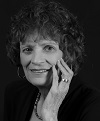


Select one of the options below:
This course is meant to meet the physiology lab prerequisite for off-campus students applying for admission to post-graduate biomedical programs.
After completing this course, the student will be able to:
BMS 300 (Principles of Human Physiology) or concurrent registration or Fundamentals of Physiology or concurrent registration; Credit not allowed for both BMS 320 and BMS 302 (Laboratory in Principles of Physiology)
If you have taken a college-level physiology course, please send unofficial transcript to Dr. Vader for approval.
Please check the CSU Bookstore for textbook information. Textbook listings are available at the CSU Bookstore about 3 weeks prior to the start of the term.

9704915446 | connie.vader-lindholm@colostate.edu
Dr. Connie Vader-Lindholm (Dr. Vader for short) received her undergraduate degree in biology with a minor in chemistry from Western State College (now Western Colorado University) located in Gunnison, Colorado. She then received a degree in medical technology—MT (ASCP) from Penrose Hospital in Colorado Springs, where she worked as a medical technologist for six years before starting her graduate work at Colorado State University earning her M.S. and Ph.D. in physiology.
While at Colorado State she worked as a graduate teaching assistant, graduate research assistant, a research assistant in biochemistry, physiology teaching lab coordinator, and assistant professor in physiology. She retired from full-time classroom teaching in May of 2016 and currently works part-time on campus mentoring the instructor who is now teaching the on-campus physiology laboratory course she developed and taught for over thirty years. Her primary teaching focus now is BMS 320, an online physiology laboratory course she developed and started teaching in 2013.